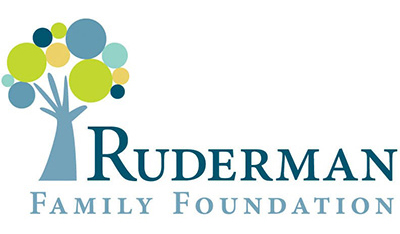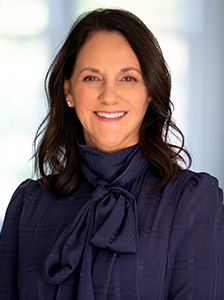David Mink finished the spring semester of his freshman year at Macalester College in Minnesota with a 0.0 GPA, amid a process in which he would take a semester of classes, withdraw, and try again.
“I just kept banging my head into the wall and felt like nothing was working,” Mink says. “What I needed was someone else initiating support. I was still figuring out and trying to cope with my mental health, and I was in no state to be the person to reach out for help. The fact that there was no outreach effort from the college except for the blanket, ‘Hey, apply for classes, check out your schedule, check out the newsletter. It didn’t feel that any person at the school cared about me. And it wasn’t until I came back from a leave and a professor recognized me and was glad to see me again, that I actually felt like I could do that class.”
 Mink shared his leave of absence experience as part of a recent webinar series organized by the Ruderman Family Foundation and Active Minds, a nonprofit organization supporting mental health awareness and education for young adults which has a presence on over 800 college, university, and high school campuses nationwide. The free workshops gave attendees a better understanding of leave of absence policies, the benefits they can bring to campuses, and how to assess and improve those policies.
Mink shared his leave of absence experience as part of a recent webinar series organized by the Ruderman Family Foundation and Active Minds, a nonprofit organization supporting mental health awareness and education for young adults which has a presence on over 800 college, university, and high school campuses nationwide. The free workshops gave attendees a better understanding of leave of absence policies, the benefits they can bring to campuses, and how to assess and improve those policies.
The experience of Mink, who later attended Monroe Community College in upstate New York, is not atypical. Seventy-five percent of college students experience significant distress, the Centers for Disease Control and Prevention (CDC) reported in 2020. Even before the COVID-19 pandemic, one-third to one-half of college students struggled with mental health issues that interfered with their capacity to thrive, according to the American College Health Association.
Students with mental health issues on campuses are also subjected to forced exclusion. Half (four) of the Ivy League schools have policies that include “community disruption” as grounds for an involuntary leave of absence, even when there is no evidence that the “disruptive” behaviors of students with mental health conditions pose a threat to the safety of their peers, the Ruderman Family Foundation documented in a December 2018 white paper.
Students’ mental health challenges surrounding their campuses’ leave of absence policies motivated the Ruderman Family Foundation and Boston University’s Center for Psychiatric Rehabilitation to co-create a first-of-its-kind set of manuals for students and staff. The organizations’ student manual, published in 2021, helps those who have experienced an interruption to their postsecondary education or who are considering a leave of absence make an informed decision about taking a leave; manage and build their collegiate resilience during a leave; and navigate the process of re-entry effectively and healthily. Meanwhile, their manual for leadership, faculty, and staff provides evidence-based approaches and recommendations for promoting a campus culture of caring, with a particular emphasis on supporting the mental health wellness of students who take a leave.
View the Student Manual View the Leadership, Faculty, and Staff Manual
Sharon Shapiro
The guides “offer unique frameworks and tools for faculty, staff, students, and their families in universities, colleges as well as organizations dedicated to the wellness of teens and young adults,” says Sharon Shapiro, Trustee and Community Liaison for the Ruderman Family Foundation, who leads the foundation’s work in the realm of mental health.
“We were drawn to develop these guides because we often heard from students that they were shunned and abandoned by their colleges or universities for struggling with mental health challenges and needing to take a leave of absence,” Shapiro says. “Both guides bring together the authentic experiences of students who have struggled with mental health issues with the vast experience and knowledge of researchers, mental health experts, and clinicians.”
Alison Malmon, Founder and Executive Director of Active Minds, adds, “Just like there is not a one-size-fits-all approach to mental health, there is also not a universal approach or timeline for finishing one’s education. A comprehensive leave of absence policy should be included in any school’s mental health strategy and I’m proud that Active Minds is partnering with the Ruderman Family Foundation to spread awareness and share ideas around creating a campus community that is inclusive of all types of learning and situations.”
Unlike Mink’s experience, the story of Kelly Maguire, a senior at Florida Gulf Coast University, offers hope that the best practices described in the leave of absence manuals are actually being implemented on some campuses.
During the recent webinar, Maguire shared that her leave of absence at Florida SouthWestern State College, a two-year institution, was “very unexpected and confusing and shocking for me.”
“One day I went to school and then the next day I was suddenly going to a treatment center for my mental health, so I didn’t really have any time to prepare for my leave of absence, it just kind of happened,” she recalls.
Maguire spent the last two months of her freshman year in a mental health treatment center, going through eight hours of therapy per day and completing two hours of college classes at night. But she received the support she needed to navigate the demands of the workload.
“Thankfully my professors were super accommodating with working with me one-on-one and helping me get that schoolwork done, even if it was outside of their typical office hours, and I also was lucky enough to work with a case manager during that time who helped me really get back on track,” says Maguire, who completed hour classes that semester with a 4.0 GPA.
Further, when she returned to campus the following fall semester, Maguire says she “felt that I was actually heard and had so much support that I was able to keep going and graduate on time, and even be the commencement speaker because of this experience. It just goes to show how much support goes such a long way when you’re in an education system.”
Without access to that kind of support, Mink says he would “come back from my leaves just sort of going through the motions, like I was doing it because my parents kept being like, ‘Oh, finish these couple of classes, you’re almost there, just get your last couple of credits.’ I wasn’t in a position to say no. I was relying on them for pretty much everything. How could I say no and that I needed to do something else? But I wasn’t ready. I didn’t want to do it.”
Regarding how other students should approach the issue of taking a leave or returning to campus after a leave, Mink says, “Other people can have good advice…but what’s most important is what you want and what you think. Because unless you’re there for it, it’s not going to happen.”
He also notes that he did not have a mental health-related diagnosis before attending college and that today “more and more college students are coming to realize this about themselves.”
“Both of my parents are doctors, but it wasn’t until freshman year that a friend told me, ‘Hey, you might be depressed,’” he says.
Maguire says the most important takeaway from her leave of absence experience was “all the support that I received from my professors and my case management system at my school,” and that practices such as professors checking in with students when they return to campus are essential.
“Seeing people advocate for me when I was at my lowest point ever, and really wanting me to come back, helped me regain my sense of worth and purpose,” she says. “It helped me understand that I was capable of doing so much more than I thought prior to taking my leave of absence. Coming back, I was more motivated and more determined than I was when I left.”
According to Maguire, students considering taking a leave of absence should ask themselves, “How are you doing? How are you doing right now in this state of where you’re at in life? If the answer is really not well mentally, physically, or in any way, maybe consider taking a leave of absence.”
She also recommends seeking help before arriving on campus.
“I went from not really addressing my mental health at all to being suddenly in an intensive program,” Maguire says. “It comes down to finding people you can go to because you can’t do this all alone.”
Students’ experiences, in turn, have prompted the Ruderman Family Foundation and Boston University to pursue what Sharon Shapiro describes as an “integrated approach” to the leave of absence issue which “provides one-of-a-kind guides for students, administrators, and faculty working together to carve a space for mental health and wellness alongside academic excellence.”
“We hope that these guides will help shape leave-of-absence policies across college campuses and establish an inclusive culture for all students,” Shapiro says.
Jacob Kamaras is an Associate at J Cubed Communications writing on behalf of the Ruderman Family Foundation.



